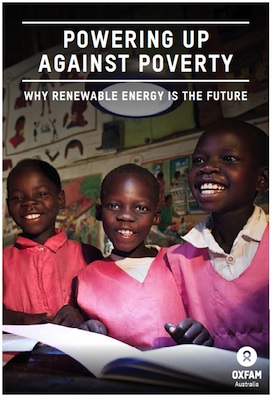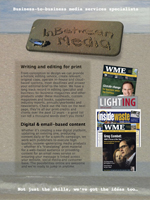 “For the foreseeable future coal is the foundation of prosperity,” Prime Minster Tony Abbott said late last year. “Coal is the foundation of the way we live because you can’t have a modern lifestyle without energy, you can’t have a modern economy without energy”.
“For the foreseeable future coal is the foundation of prosperity,” Prime Minster Tony Abbott said late last year. “Coal is the foundation of the way we live because you can’t have a modern lifestyle without energy, you can’t have a modern economy without energy”.
He went on to say that if we are serious about raising people’s living standards in less developed countries, as well as our own, we have to be “serious” about making the “best use” of coal.
A recent Oxfam report suggests the best use for coal would be to keep it in the ground if we are serious about addressing risks to our quality of life as well as those in developing countries. Aside from the impacts of climate change and health costs, the NGO committed to alleviating poverty also reported that for some of the world’s poorest, renewable energy is more accessible than coal-fired.
“If we’re to have a good chance of meeting the internationally agreed goal of limiting warming to no more than 2 degrees – let alone the 1.5 degrees that many countries rightly demand for their very survival – then around 80% of known coal reserves will need to remain unused. This includes nearly all of Australia’s known reserves,” said Oxfam’s Simon Bradshaw.
The question of risk was answered decisively on 14 August by the City of Sydney’s release of a landmark plan responding to the threats of climate change and extreme weather events like the April storms experienced across Sydney.
Lord Mayor Clover Moore said the adaptation strategy is important because climate change is the biggest challenge facing the city.
“We are frustrated by the lack of political leadership nationally to reduce greenhouse emissions, but we are taking steps to adapt and reduce our vulnerability to climate change,” the Lord Mayor said.
But I guess it all depends on whether you believe burning fossil fuels, such as coal, is contributing to global warming and climate change. Australia’s Coalition government clearly do not.
But whether or not you believe in anthropomorphic climate change, Oxfam’s work shows that coal does not always present the best opportunity to improve access to energy – one of the key elements in overcoming poverty.
“Coal power is often the expensive and impractical option for the hundreds of millions of people across sub-Saharan Africa and Asia who still live without electricity,” said Bradshaw, as the overwhelming majority live in rural areas.
“On the other hand, tapping into local renewable energy sources means access to clean, safe and affordable energy, and is bringing jobs and development to rural and urban communities.
“In Bangladesh the number of home solar systems has jumped by more than a hundredfold in the past 10 years, in turn creating over a hundred thousand new jobs. In the Pacific, solar energy is reducing reliance on expensive imported diesel and providing power to schools and health clinics,” said Bradshaw.
He says Australia must support developing countries in building the sustainable, low-carbon economies of the future, as urged by the Indian Prime Minister Narendra Modi.
“If Australia truly wishes to help bring low-cost energy to the world and build a bright economic future for itself, it’s time we stopped exporting dirty coal and promoting it as a false solution to poverty, and began exporting ideas and innovation. At the same time we must fulfill our obligation to help cover the costs of sustainable development,” said Bradshaw.


Comments are closed.